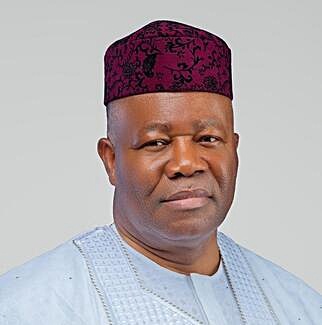By Keem Abdul
Despite dreaming of becoming a civil engineer during his childhood, General Ibrahim Babangida, GCFR, found himself on a different path that led him to the military. However, his presence in Nigerian politics had a profound and lasting impact on the country and its people. From August 1985 to August 1993, Babangida, also known as IBB, played a pivotal role in engineering significant changes that shaped Nigeria’s trajectory during the 1980s and early 90s.
IBB was known by numerous acronyms and nicknames, including Maradona, which exemplified his political genius and larger-than-life persona. As he approaches his 83rd birthday, tributes and reflections on his eventful eight-year rule are expected. This period began with the overthrow of his predecessor, Maj-Gen. Muhammadu Buhari, in a palace coup and witnessed monumental developments in Nigeria’s economic, social, and political landscapes.
On the economic front, IBB’s adoption of the controversial Structural Adjustment Programme (SAP), based on the International Monetary Fund’s recommendation, sparked debates. While the export sector initially flourished under SAP, discontent arose due to declining wages in the public sector and reduced government expenditure on public services. Despite this, IBB’s government made significant investments in transforming the country’s infrastructure. Notable achievements include the construction of the Third Mainland Bridge in Lagos, enhancing the city’s status as the commercial hub of Nigeria and West Africa, and the development of the Kaduna-Kano Highway and Shiroro Hydroelectric Power Station.
Socially, IBB’s Mass Mobilization for Self Reliance, Social Justice and Economic Recovery (MAMSER) aimed to redefine Nigerians’ behavior without resorting to coercive measures. Additionally, he established the Federal Road Safety Corps (FRSC) to improve road management. His late wife, Mariam, successfully redefined the role of the First Lady with her Better Life Programme, leaving a lasting impact on future First Ladies.
However, IBB’s most significant impact was on the political front. As President and Head of the Armed Forces Ruling Council (AFRC), he restructured Nigeria’s national security apparatus and created the State Security Service (SSS), the National Intelligence Agency (NIA), and the Defence Intelligence Agency (DIA). Committed to returning political power to civilians, he initiated the Nigerian Political Bureau to assess the country’s political history and identify challenges. Furthermore, IBB reshaped Nigeria’s geopolitical landscape by creating new states, notably Akwa Ibom, Katsina, Abia, Enugu, Delta, Jigawa, Kebbi, Osun, Kogi, Taraba, and Yobe. His most significant endeavor was the relocation of the nation’s capital from Lagos to Abuja in December 1991.
IBB also left his mark on Nigeria’s foreign policy, particularly through the country’s involvement in the fight against apartheid in South Africa and the hosting of the Abuja Treaty that gave birth to the African Union (AU). Nevertheless, it was IBB’s controversial annulment of the highly acclaimed presidential election of June 12, 1993, won by the late Bashorun Moshood Abiola, that ultimately led to his regime’s downfall. Babangida subsequently handed power to an Interim National Government led by Chief Ernest Shonekan.
Born on August 27, 1941, in Minna, Niger State, Ibrahim Badamasi Babangida received his early education in Minna and Bida before joining the Nigerian Army in 1962. Over the years, he rose through the ranks and became a key figure in Nigerian military and political circles. Despite garnering various descriptions, including the infamous “Evil Genius,” Babangida defies categorization. Often described as a “soldier’s soldier” and a master politician, he possesses a unique combination of warmth, gregariousness, and ruthlessness. With a sharp intellect, Babangida ranks among the most talented individuals to have led Nigeria since its independence.
Regardless of personal opinions, General Ibrahim Badamasi Babangida is an influential figure who has shaped modern Nigeria. As he celebrates his 83rd birthday, his contributions to the nation’s history cannot be overlooked.
Happy 83rd birthday, General!
- Keem Abdul, publisher and writer, hails from Lagos. He can be reached via +2348038795377 or Akeemabdul2023@gmail.com
Discover more from Tension News
Subscribe to get the latest posts sent to your email.

